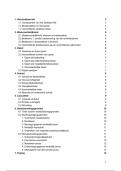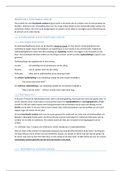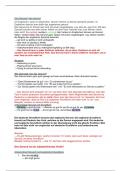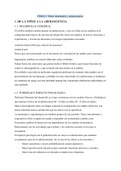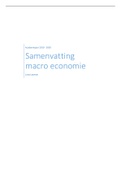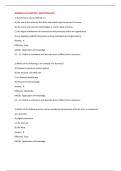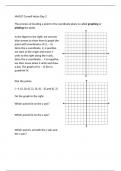The cognitive approach unlike the behaviourist approach focuses on the internal mental
processes and argues that they should and can be studied scientifically. As a result, it
focuses on the memory, perception and thinking the areas neglected by behaviourists. The
processes are studied scientifically through laboratory studies. As cognitive processes are
‘private’ and cannot be visibly observed directly, psychologist must study them indirectly
through making inferences about what is going on inside people’s minds based on observing
their behaviour.
It also uses theoretical models to study interval processes. One important theoretical model
is the information processing approach, which suggests that information flows through the
cognitive system in a sequence of stages that include input, storage and retrieval, as in the
multistore model. The cognitive approach also sees the mind work similar to a computer
(‘computer analogy’) in the way information is processed. Therefore, using metaphors such
as processing, retrieval to explain what happens within the human mind. As well as
comparing the brain to the central processing unit (CPU) of a computer.
Cognitive processes can often be affected by a person beliefs or expectations, often referred
to as ‘schemas.’ Schemas are ‘packages’ of ideas and information developed through
experience. Schemas are unique to each individual as our own experiences are subjective to
ourselves. The older you get the more detailed and sophisticated your schema becomes.
Schemas are useful to us as they enable us to process lots of information quickly and fill in
gaps when information is lacking based on past experiences. However, schemas may also
eliminate anything which does not match our pre-existing beliefs/idea or expectations.
A strength of the cognitive approach is that it uses experimental and rigorous methods of
study. This allows researchers to collect and evaluate evidence of cognitive processes at
work, which is a major strength to this approach. This involves the use of lab experiments
which produce reliable and objective data. Therefore, conclusions drawn from these
findings are much more than methods such as introspection can offer as repeat studies
show reliability through finding similar results.
A limitation of the cognitive approach is despite the similarities in the human mind and
computer analogy it’s been criticised by many. This is because it ignores the fact that
humans have free will and are more complex individuals. Terms such as “storage, encoding
and retrieval” are taken from computer terminology to explain how the human mind works.
However, there is a big difference between how information is processed in the mind and in
machines. Such machine reductionism ignores the influence of emotion and motivation on
the mind and that the human mind is more likely to make mistakes when processing
information. This is due to factors such as forgetting information or recovering incorrect
information from memories that computers don’t do. Therefore, basing cognitive processes
on computer based models lack validity as it not accurate enough on how the mind really
works.




